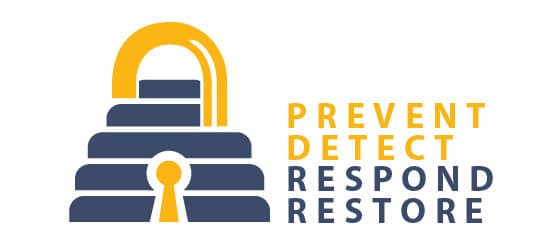Nexus IT Consultants is proud to be sponsoring the Cybersecurity Leadership Council of the Salt Lake Chamber’s series of three lunches, educating members about “Privacy & Data Protection: Its impact on your company, brand and revenue.”

With sophisticated cyber threats evolving and growing, you can’t take any chances with your confidential data. These are lunch and learns that you don’t want to miss! They can make the difference between a vulnerable business IT environment and one that’s secure.
Your employees are the weakest link in your cybersecurity defenses, therefore it’s essential to train your staff on how to recognize and stop social engineering attacks before they affect your business. Providing Security Awareness Training for employees is the easiest way to become more secure and avoid compromising IT attacks.
Hackers look for security flaws in software to exploit. They write codes to target software vulnerabilities. An exploit can infect your computer without you even knowing. It can steal data on your device or allow the attacker to gain control over your computer and encrypt your files.
This is why all of your systems and software, including networking equipment, should be updated in a timely fashion as patches and firmware upgrades become available. Use automatic updating services whenever possible, especially for security systems such as anti-malware applications, web filtering tools and intrusion prevention systems.
Backup & Disaster Recovery, or BDR, is when a Managed Service Provider (MSP) protects your data to ensure business continuity. It’s their responsibility to prepare your IT for a disaster, which can come in the form of a natural occurrence or when a hacker gains access to your data.
BDR requirements vary from business to business. But these are the features that any company should look for:
Establish security policies for the use of mobile devices on your network. They should be password-protected so only authorized users can use them. Instruct your employees to only use devices that belong to them and have been protected by your security policies. Ask your IT provider about Mobile Device Management that will wipe data from a device if it’s lost or stolen.
Limit your employees’ authorization with role-based access controls that prevent network intrusions and suspicious activities. Define user permissions based on the access required for their particular job. Also, know who has access to your data, and enforce a “need-to-know” policy.
Weak passwords are one of your weakest links. Have your users create long (more than 12 characters) and complex passwords, and never use the same passwords for different uses. If one gets cracked, then a hacker can use it to access information in other places. Also, consider using a password manager like Last Pass or Dashlane where you can create and store strong passwords for all your different accounts.
Ensure that your employees don’t download software into your system. Hackers trick unsuspecting staff members into downloading malicious software. It then embeds viruses into your system that can lock up or steal your data. You can prevent this with employee training.
The frequency, sophistication and variety of web server attacks today ?? require that web server security must be implemented through layered and diverse protection mechanisms. This approach is sometimes referred to as “defense-in-depth.”
You need and a multi-layered cyber defense (e.g., firewalls, routers, intrusion detection systems) that supports the webserver. In most configurations, the network infrastructure will be the first line of defense between a public web server and the Internet. Although network design alone cannot protect a web server.
Your firewall is an integral part of your layered cyber defense. But all firewalls need monitoring and maintenance, just like all devices on your network. Your IT services company should do this as part of your routine maintenance.
Contact your IT support company to have them assess the WiFi in your office for security- no wireless network is entirely safe from the talented hackers out there today. They will examine the wireless security measures that you have in place and determine if upgrades must be made to ensure their effectiveness.
There’s much more to know about privacy and data protection.
Be sure to reserve your spot for the Salt Lake Chamber’s series, Register here.